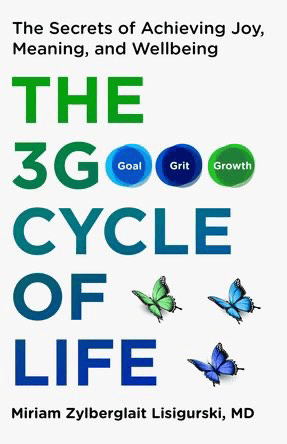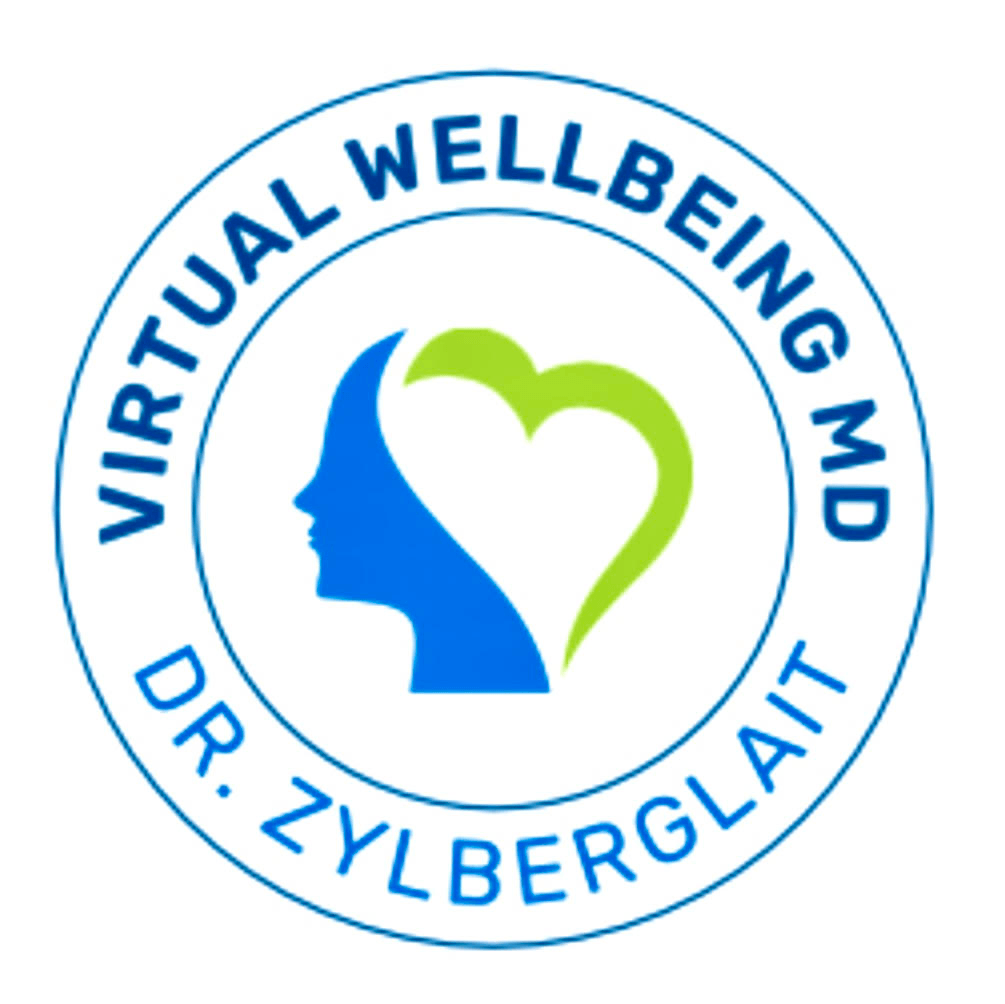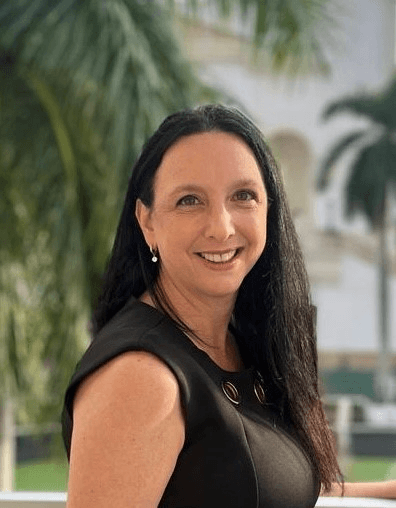We were lucky to catch up with Miriam Zylberglait recently and have shared our conversation below.
Hi Miriam, thanks for joining us today. We’d love to hear about how you went about setting up your own practice and if you have any advice for professionals who might be considering starting their own?
Embarking on the journey of starting my own concierge virtual practice was both exhilarating and daunting. It was a decision born out of a desire to provide the kind of care I truly believed my patients deserved – personalized, holistic, and utilizing the latest in technology and evidence-based medicine. As I ventured into this endeavor, I found myself facing a myriad of challenges and opportunities for growth, each requiring me to develop a diverse set of skills.
One of the first skills I had to hone was strategic planning. From defining the mission and values of my practice to mapping out the steps needed to bring it to life, strategic planning became my compass in navigating the complex landscape of healthcare entrepreneurship. It taught me the importance of setting clear goals and staying focused on the bigger picture, even when faced with inevitable hurdles along the way.
As I delved deeper into the process, I realized the significance of understanding the intricacies of healthcare regulations and compliance. This meant immersing myself in a world of legal jargon and navigating through a maze of rules and requirements. While daunting at times, this journey taught me the importance of attention to detail and the value of seeking expert guidance when needed.
Building a successful practice also required me to develop strong communication and networking skills. Whether it was forging partnerships with other healthcare professionals or connecting with potential patients, effective communication became the cornerstone of my success. It taught me the power of building relationships and the impact it can have on the growth and reputation of a practice.
Of course, no entrepreneurial journey is without its challenges. There were moments of doubt and uncertainty, times when setbacks seemed insurmountable. But through it all, I learned the importance of resilience – the ability to bounce back stronger and more determined than ever. Each setback became an opportunity for growth, a chance to learn and evolve as both a healthcare provider and a business owner.
Looking back, there are certainly things I would do differently know what I know now. I would place a greater emphasis on marketing and branding early on, understanding the importance of visibility and differentiation in a crowded marketplace. I would also prioritize building a support team sooner, recognizing the value of delegating tasks to focus more on patient care and practice growth.
For any young professional considering starting their own practice, my advice would be simple – believe in yourself and your vision, but also be prepared to embrace the journey with humility and an open mind. Develop a diverse set of skills, from strategic planning to communication, and never stop learning and adapting along the way. Surround yourself with a supportive network of mentors and peers who can offer guidance and encouragement when needed. And above all, never lose sight of the reason you embarked on this journey in the first place – to make a positive difference in the lives of your patients.

Awesome – so before we get into the rest of our questions, can you briefly introduce yourself to our readers.
My journey into the world of healthcare began over 20 years ago when I embarked on a path to become a triple Board Certified Physician in Internal Medicine, Geriatrics, and Obesity Medicine. Throughout my clinical and academic endeavors, I’ve had the privilege of delving into various facets of medicine, but my true passion lies in promoting well-being, addressing burnout, nurturing mental health, and fostering leadership development.
Over the years, I’ve dedicated myself to not only treating patients, but also understanding the deeper dimensions of what it means to live a fulfilling life. This journey led me to pursue specialized training in leadership education and development, become certified as a Mental Health Ally, and train as a Physician Wellness Advocate. These experiences have equipped me with a unique perspective on health and well-being, allowing me to offer comprehensive support to my clients.
My commitment to empowering others to lead lives filled with joy, meaning, and well-being extends beyond the confines of traditional healthcare. I’m deeply passionate about sharing my insights and expertise with a wider audience, which is why I authored the #1 Best Seller Book “The 3G Cycle of Life: The Secrets for Achieving Joy, Meaning, and Well-being.” This book encapsulates my philosophy and offers practical strategies for achieving holistic well-being in today’s fast-paced world.
What sets me apart from others in my field is not just my extensive clinical experience or academic accolades, but my genuine dedication to helping individuals thrive in every aspect of their lives. Whether it’s through personalized medical care, leadership coaching, or mental health advocacy, I strive to make a meaningful difference in the lives of those I serve.
My practice is dedicated to providing personalized, comprehensive, and accessible care that empowers you to take control of your health and well-being. Whether you’re looking to address specific health concerns, optimize your overall wellness, or simply take proactive steps towards a healthier future, I’m here to support you every step of the way. Together, we’ll unlock the path to a life filled with joy, meaning, and well-being.

Do you think you’d choose a different profession or specialty if you were starting now?
Reflecting on my journey, I can confidently say that choosing to pursue medicine again in the US, after already practicing for 10 years in my home country, was one of the most rewarding decisions of my life. Despite starting from scratch in a new environment, my passion for helping others and my dedication to providing exceptional care remained steadfast.
I feel immense fulfillment from being able to make a positive impact on people’s lives. Every day brings new opportunities to learn and grow, and I approach each patient encounter with curiosity and a commitment to continuous improvement.
Witnessing the transformation in my patients’ health and well-being is incredibly gratifying—it fuels my soul and reaffirms my choice to dedicate myself to this profession. Moving to the US and retraining in the same specialty was a deliberate decision driven by my desire to continue practicing medicine in a way that aligns with my values and beliefs.
My practice is not just about treating illnesses; it’s about fostering a partnership with my patients to achieve optimal health and happiness. Whether addressing specific health concerns or promoting overall wellness, I am dedicated to providing personalized, comprehensive care that empowers individuals to take control of their well-being.
In hindsight, I would unequivocally make the same choice again. The opportunity to contribute to my patients’ lives in such a meaningful way is a privilege that I cherish every day.

Putting training and knowledge aside, what else do you think really matters in terms of succeeding in your field?
In addition to training and knowledge, several qualities are crucial for succeeding in the field of medicine:
1. Curiosity: A genuine curiosity drives continuous learning and innovation in medicine. It encourages exploration of new treatments, understanding of complex cases, and staying updated with advancements in medical research.
2. Grit: Medicine often presents challenges that require perseverance and resilience. Grit enables healthcare professionals to persist through setbacks, demanding schedules, and difficult patient situations without losing sight of their goals.
3. Integrity: Upholding high ethical standards and honesty is fundamental in medicine. Patients trust healthcare providers with their well-being, making integrity essential for building and maintaining trustful relationships.
4. Compassion: Compassion fosters empathy and understanding toward patients’ concerns, which is vital for providing patient-centered care. It enhances communication, improves patient outcomes, and creates a supportive environment.
5. Emotional Intelligence: Understanding and managing one’s emotions, as well as recognizing and responding effectively to others’ emotions, are critical skills in healthcare. Emotional intelligence facilitates better teamwork, patient interactions, and decision-making under pressure.
These qualities not only complement medical expertise but also contribute significantly to a physician’s ability to provide holistic and effective care. They form the foundation of a successful and fulfilling career in medicine, enriching both the professional and patient experience.
Contact Info:
- Website: https://www.virtualwellbeingmd.com
- Linkedin: https://www.linkedin.com/in/drzmd/




Image Credits
n/a


